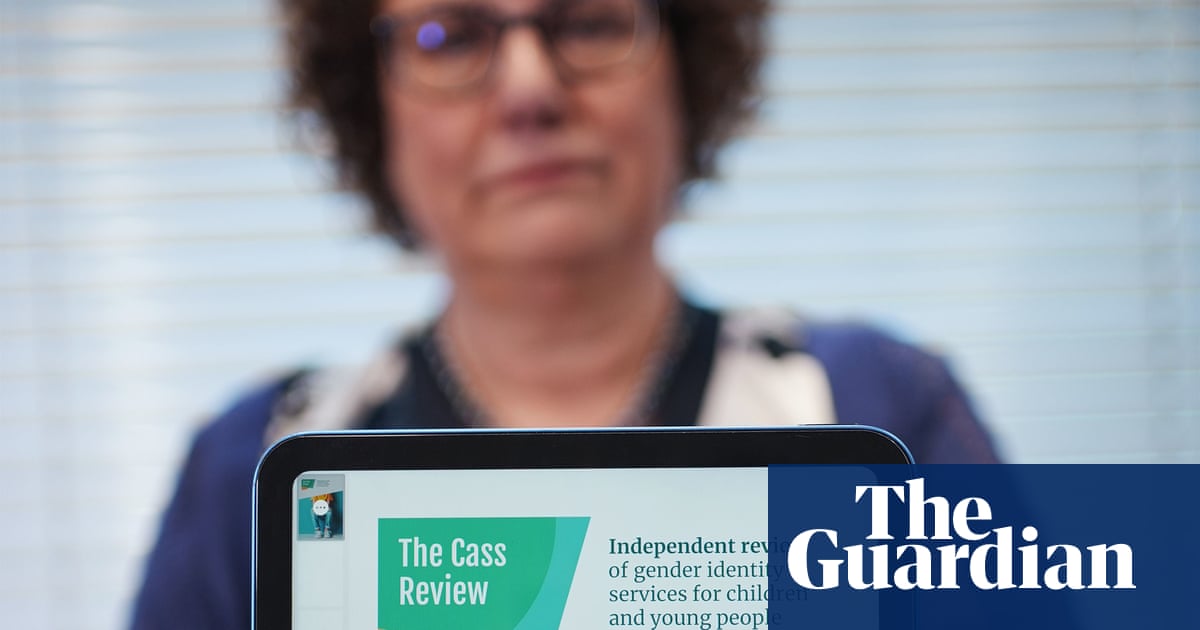
The care regulator has launched a review of serious and significant concerns raised by patients, clinicians and health groups about Britain’s biggest medicines delivery business, the Guardian can reveal.
Sciensus is paid millions of pounds each year by the NHS to transport vital drugs and medical items to about 200,000 people with conditions including cancer, heart disease, diabetes, dementia and HIV.
“Whether you’re finding your feet with a fresh diagnosis, beginning a new treatment or living with a long-term condition, we’re here to support you, every step of the way,” its website says.
But the company has struggled to provide a safe or reliable service, a four-month investigation by the Guardian has found.
Patients repeatedly complain about delayed or missed deliveries of medication to their homes. In some instances, their health suffers as a result, according to clinicians.
Others say they have become anxious and distressed, and expressed concern about the impact of delivery problems on their long-term health. Some say their frustration is compounded by struggles they face in reaching Sciensus to complain.
In a statement, Sciensus said it was “very sorry” about any delays faced by patients. The company understood how important it was for people to get their medicine on time, it insisted, and pointed out that it had a range of support services for patients with concerns.
After being approached by the Guardian, the Care Quality Commission, the care regulator, said on Friday it was “aware of concerns raised” about Sciensus.
“Inspectors are currently reviewing these concerns to identify whether further regulatory action is required and refer those that are not within CQC’s power to address to its partner agencies, as appropriate,” a spokesperson said.
“CQC will report further on this as soon as we are able to and will not hesitate to take any action necessary to make sure people using services are safe.”
The CQC’s most recent inspection report on the company, formerly known as Healthcare at Home, rated it as “requires improvement” on safety, after an inspection in July 2021.
“We remained concerned that incidents or near misses … were not fully investigated,” the 17-page report said. The CQC rated the company as “good” overall.
The company announced a “major rebranding exercise” in the same month as the inspection, the Guardian found, which included changing its name to Sciensus.
“The new name reflects the company’s forward-thinking approach, which aims to harness new digital technology and patient insight to provide patients with more knowledge, more choice and greater convenience,” it says on its website.
However, the Guardian has established that since the CQC report and the company’s name change, problems have persisted.
In a complaint to the CQC in November 2022, a number of NHS staff accused Sciensus of not delivering medicines to patients when it was scheduled to do so, and in some cases providing incorrect medication.
They also raised concerns with the regulator about missing paperwork and Sciensus not responding to calls or emails. Others raised concerns about lengthy waits for new patients to start having medication delivered. Some waited more than six months, according to the complaint.
One patient was sent the correct medication by Sciensus but the wrong syringe to administer it, leading to the patient missing several doses.
Some NHS clinicians have reported experiencing “daily issues” with Sciensus. Others said they had seen an increase in patients “flaring” as a result of missed or delayed medication doses. Some even reported an uptick in hospital admissions.
Hundreds of people have posted negative reviews of Sciensus on the Trustpilot and NHS websites. There are also positive reviews.
“Daughter’s medication has run out,” Julia Ryan wrote on Trustpilot on 5 April this year. “Hospital say that they have paid for an urgent delivery. But I have heard nothing from Sciensus.”
She added: “Can never get through on the phone. Yesterday was on hold for 42 minutes before they cut me off. Can never get an answer on the app.
“Have tried emailing Danni who responds to all these reviews and no reply there either. This is just the most appalling service company ever.”
“Waited in all day for my medication,” James Cowan wrote on the NHS website on 11 April. “Five phone calls later I am still none the wiser.
“Told different things from five people and waiting on a manager to call me back. Callback protocol is 24 to 48 hours. Ridiculous as I have no medication to take and I am left wondering when it will arrive. Call advisers are not helpful at all.”
“This company is totally incompetent,” Laura Bell wrote on the NHS website on 1 March. “They fail consistently to deliver cancer medication without any concern for patient health and wellbeing, deliver incorrect ancillaries – send texts advising of delivery dates that are already passed – and have no idea what they are doing.
“Appalling service that is life-threatening for people who have no choice but to rely on them for medication. Is it going to take someone’s death for a change to happen?”
Bell told the Guardian that her 69-year-old mother, who has leukaemia and a weakened immune system, was frequently left in tears because of problems with Sciensus. At various points, her medicine had run out, her syringes had failed to turn up and dead batteries for medical devices had been issued.
“Her life is at risk without the medication,” Bell said. “If she misses a dose, her immunity will be compromised. For two years now, my mother’s medication has not been delivered without some form of error, distress or complaint or chasing being required.”
Her mother spoke on the condition of anonymity for fear of a negative effect on how the company treats her. “I’ve thought about just stopping the medication, so I won’t have to deal with Sciensus or put up with this any more,” she told the Guardian. “But if I do, I’ll die.”
Dr Dale Webb, the chief executive of the National Axial Spondyloarthritis Society, a charity, said it was essential that patients living with serious conditions such as axial spondyloarthritis, a form of arthritis that affects the spine and other joints, have a regular and reliable supply of medication.
“If they do not, people can end up in pain, lose control of their condition and ultimately develop resistance to the medication. We have serious concerns about Sciensus and repeatedly hear from people who have been let down,” Webb said. “The situation is unacceptable. This needs to be resolved urgently.”
Julie Dervey, who has an autoimmune condition and lupus, said she had experienced two years of delays and a host of other problems with Sciensus. “It’s just an appalling service in every respect,” she said.
In just the last month, Dervey has asked her hospital to switch her medication to one she can collect at a pharmacy, so she will no longer have contact with Sciensus.
Emma Friddin, who has rheumatoid arthritis and Crohn’s disease, said she had noticed a sharp contrast between Sciensus and other medicine delivery businesses, which she found to be “excellent, stress-free and efficient”.
“Sciensus were delivering my medication to me from March to September 2022 and my experience was exceptionally poor and really contrasted to the other homecare companies I have used,” she told the Guardian.
“Out-of-date drugs, continual difficulties organising deliveries and cancelled deliveries are just a few of the issues I experienced. It was a nightmare to get hold of them and talk to a person, making the experience even more stressful.
“Luckily I am now back to using another company, who provide the service how it’s meant to be – easy.”
Ali Rivett, the chief executive of the British Society for Rheumatology, said: “Our members, working in adult and paediatric NHS rheumatology services across the country, have been raising the alarm about the safety and reliability of services provided by Sciensus since September 2022.”
He said clinicians treating children and adults for rheumatic conditions had raised “deeply worrying” concerns about the company. In some cases, he said, patients had deteriorated as a result of missed or delayed medicine deliveries.
“It is extremely worrying and regrettable that our members have reported instances of patients flaring due to issues with Sciensus homecare services,” Rivett said.
“Issues relating to Sciensus have been wide-ranging, from significant delays in new patients receiving and starting their drug therapies, issues relating to repeat prescriptions for existing patients, which has led to gaps in treatment in some cases, and a failing customer support system which has left patients in the dark and NHS rheumatology services inundated with patient inquiries relating to their homecare medicines.”
A Sciensus spokesperson said: “We are very sorry if any patients have faced delays – unfortunately, without the details, we are unable to comment specifically.
“Our speciality pharmacy service dispenses medicines to patients on behalf of the NHS across the UK, and we understand how important it is for people to get their medicine on time.
“In cases where patients have concerns, we have a range of support services, including a priority helpline and same-day emergency dispensing.”












